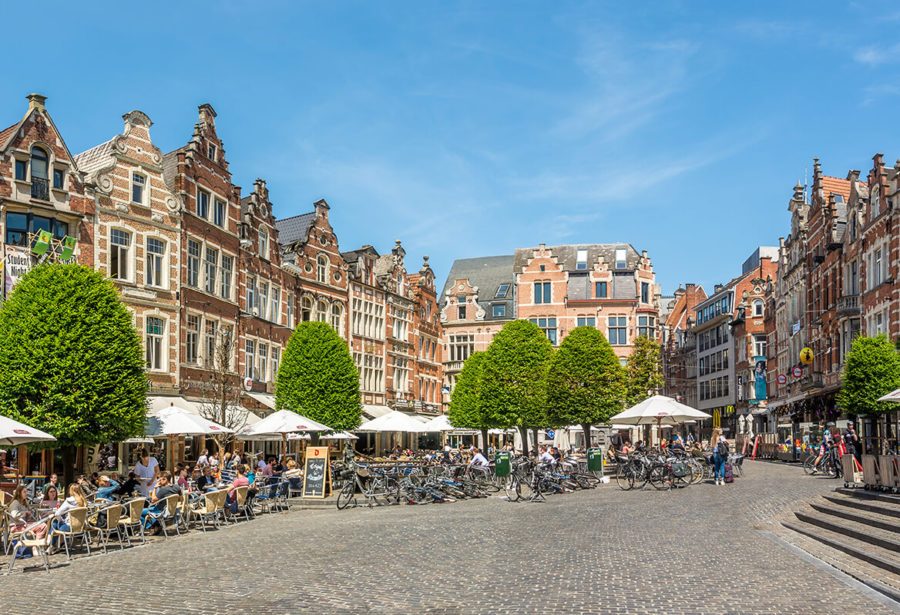
City in the spotlight: Leuven
Leuven is a city with 100,000 inhabitants and the location of the oldest university of North-West Europe. The university, labeled the most innovative in Europe by Reuters (2019), brings a lot of dynamism and activity to the city, with more than 55,000 students and a lot of spin-off companies in technology and research.
The city can be characterized as a suburban area in the influence sphere of metropolitan Brussels, but also as an urban center with a strong growth in employment and a growing attractiveness to the surrounding area.
Leuven is struggling with congestion and challenges in transport planning resulting from both its role as commuter hub and as urban attraction. At the same time, there has been a spectacular growth in public transport use in the past three decades and there is a high share of cycle use.
Beyond public transport and bicycles, Leuven has several active shared-car providers and a car-sharing enthusiastic population, resulting in a current penetration rate of 3% of the population, the highest in Belgium, and lots of potential for further expansion.
Looking forward: Leuven’s policy priorities
Leuven’s policy priorities include the reduction of congestion, energy consumption and emissions, the improvement of accessibility to and from the city center, the systematic incorporation of new mobility services and the integration of public transport with surrounding communities.
Leuven has implemented a circulation plan in the city center, restricting traffic flows to fixed loops that are not connected to each other but lead back to the outer ringway, and giving pedestrians and cyclists a more prominent place.
In the next few years, the city wants to implement similar circulation plans in the outer districts too. Another important project is the introduction of “Mobipunten” in Leuven. These are locations throughout the city where shared mobility services and public transport services will be combined. The first points will be setup in early 2020, and this will also create opportunities for additional shared mobility services to get off the ground in Leuven.
Leuven is also rethinking its public transport system with a focus on a high-level regional public transport network called Regionet, which forms the basis for future urban developments in the whole region.
These ambitions are framed within the project of LKN2030, an ambitious plan for the city of Leuven to become climate neutral by 2050.
Why joining MOMENTUM?
Given the upcoming plans regarding the circulation plans, the Mobipunten and Regionet, it is crucial to have clear insights on future travel behavior, especially concerning shared mobility, and on the future evolution of the modal split and its impact on traffic flows and congestion.
MOMENTUM will help the city of Leuven provide these insights by developing a new, state-of-the-art multimodal traffic model which also considers the new mobility providers.


